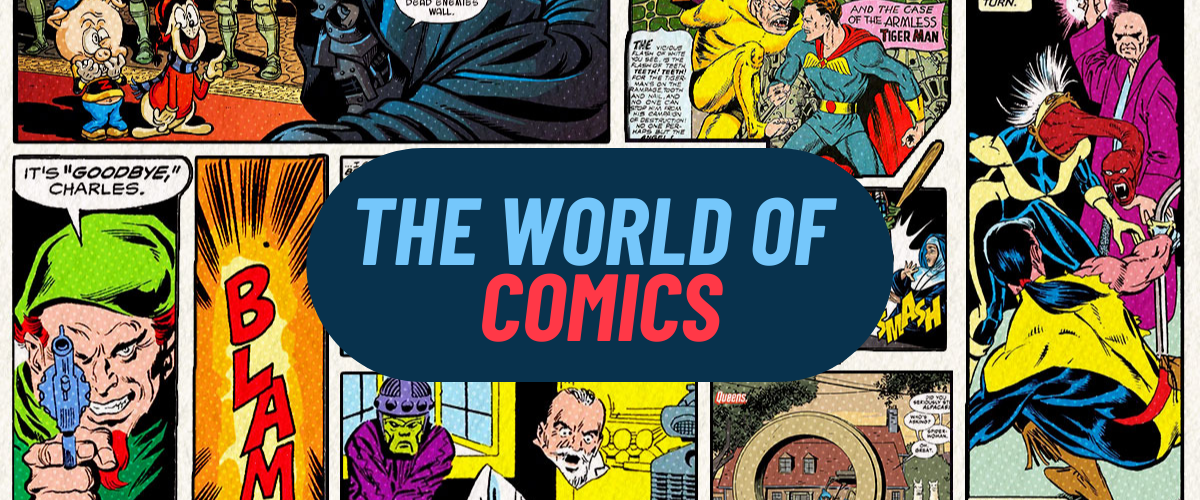The Comic Book Universe: A Journey Through History And Pop Culture

Comic books have long been a source of inspiration, imagination and entertainment for people of all ages. These colourful, ink-drawn stories have not only shaped the childhoods of generations but also left an indelible mark on popular culture. Let’s take a deep dive into the rich history of comic books, explore the birth of iconic characters, and examine the profound impact of comics on our society and entertainment landscape.
The Birth of Comic Books
Comic books as we know them today owe their origins to the early 20th century. The first true comic book, ‘Famous Funnies,’ was published in 1933 and featured a collection of reprinted newspaper comic strips. This marked the birth of a new medium, one that would soon introduce original characters and stories.
Golden Age Heroes
The Golden Age of comics, which spanned from the late 1930s to the early 1950s, introduced readers to some of the most enduring and iconic characters in comic book history.
Superman, created by Jerry Siegel and Joe Shuster, burst onto the scene in Action Comics #1 in 1938, ushering in the era of superheroes. Batman followed in 1939, giving readers a darker, more human hero in contrast to the god-like Superman.
World War II played a significant role in shaping the Golden Age of comics, with superheroes often fighting against the Axis powers in their adventures. Characters like Captain America, Wonder Woman and the Flash became cultural symbols of hope and resilience during a tumultuous time.
The Silver Age and Beyond
The 1950s and 1960s marked the Silver Age of comics, characterized by a resurgence of superhero popularity. Marvel Comics, under the guidance of Stan Lee and artists like Jack Kirby and Steve Ditko, introduced a new wave of characters, including Spider-Man, the X-Men and the Fantastic Four. These characters, with their relatable flaws and human struggles, brought a new level of depth and complexity to the genre.
Comics as Social Commentary
Comic books have never been solely about escapism. Throughout their history, they have served as a reflection of the social and political issues of their time. Marvel’s X-Men, for example, tackled themes of prejudice and discrimination, using mutants as a metaphor for marginalized groups. ‘Green Lantern/Green Arrow’ explored pressing issues like d**g addiction and poverty.
The Impact on Pop Culture
Comics have permeated every facet of pop culture. From blockbuster films to television series, video games to merchandise, comic book characters and stories have become ubiquitous. The 21st century has seen the rise of the Marvel Cinematic Universe (MCU), a multi-billion-dollar franchise that has redefined how we consume superhero stories on the big screen. DC Comics has also made its mark with hit movies like ‘The Dark Knight’ trilogy.
Beyond film, comic conventions like San Diego Comic-Con draw thousands of fans each year, celebrating the art, creativity and community of comics. The influence of comic books can be seen in fashion, art and even academic studies.
Comic books have come a long way from their humble beginnings as collections of newspaper comic strips. They have evolved into a powerful medium that not only entertains but also challenges and inspires. The legacy of comic books, with their iconic characters and thought-provoking stories, continues to shape our world, reminding us that the heroes we find on the pages can also exist within ourselves. As the pages turn, the comic book universe continues to expand, and its impact on pop culture shows no sign of waning.
–Silviya.Y








